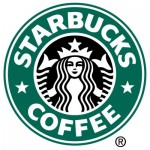 In the cluttered, noisy morass that is online music, getting people’s attention is hard.
In the cluttered, noisy morass that is online music, getting people’s attention is hard.
Once you have some idea who your fans are it’s easy to find more where you found the first few but getting early traction is a matter of spreading the word far and wide. Trouble is, everyone else is doing the same thing.
The aim is to tell as many people as you can about what you’re doing in the hope that some of them will like it. So you need to make sure you’re marketing consistently in every cheap way possible. If you’re serious, you’ll make sure you have all these elements in place before you get started.
1) Digital distribution
Sounds kind of obvious but there’s no point marketing something that people can’t buy. CDBaby, Tunecore and many others will consign your music to iTunes and heaps of other digital stores. ReverbNation and BandCamp offer this and also to sell via widgets you can put on your own sites. It costs and there are several fee structures to choose from. However, continue to #2, for with a properly developed website, you can own your own store with a simple to get PayPal account!
2) Your own website
MySpace has been described as “a turd rolled in glitter” and we’ve been calling it “the biggest whale on the beach” for a few years now. If you’re serious about making any kind of living from your music you get your own website where you have full control over the design, content and revenue. Use the other sites to drive people to your main site.
3) An email marketing channel
Once you’ve got fans, you need to stay in touch with them. Collecting e-mail addresses is the best way to tell people about everything you do, knowing full well that the email recipients WANT to be told. ReverbNation, Bandcamp but still nothing can beat having your own membership capabilities on your website. Our philosophy has always been “1st party ownership of content is a lot better than 3rd party ownership”. If you’re lucky, your fans will forward the emails on to potential fans, who will also sign up.
4) A social marketing channel
Social networking sites are designed to make good stuff go viral. If you’re not putting your good stuff into a social networking channel via Facebook, MySpace, Twitter, etc, then you’re missing a major opportunity to let people know about what you’re doing. The whole point is that if your stuff appeals to someone they will tell all their friends about it. They’re also a great way to collect fans and stay in touch with them in between big events like an album launch or a tour.
5) A presence in the blogosphere
Connecting with fans is more than just telling them about your latest offerings. People who care about your music also care about what you think about the other issues in their lives. You should, of course, have a blog on your website, but you should also write for other blogs and join the conversation on other topics. People who notice your comments will be curious about the commenter and follow the links back to your website. This is also true of email discussion lists.
6) A traditional media marketing channel
Much as it’s unfashionable to say it, traditional media still works and if you’re not at least trying to get your music played on radio or your latest release reviewed in local street press, you’re missing an opportunity. This can be expensive, but services like Mi2n will distribute your press release far and wide for free, or for a small fee. Online marketing is most effective if it is properly integrated with offline marketing.
7) A centralized distribution point
Got enough places to update yet? If you’re doing all of the above each day you’ve probably got no time to write or rehearse. Ping.frm is one site that may help you accomplish this. This can also be accomplished centrally from your website (if designed properly).
8) Video content
People wanna see visual art associated with music (as well as a stage presence) . Video is also about showing fans (instead of just telling them) what’s going on. If you’re not putting videos up on Youtube, Vimeo, or uStream you’re failing to maximize the potential reach of your music.
9) Merchandise
Having an online merch store is easy and works not only to generate income but also to let your fans spread the word. While ReverbNation and Bandcamp provide a store widget to embed in your website and social media sites, we still recommend that you own the store and have it on your own website. More profits, more flexibility and more marketing opportunities!
10) Face-to-face marketing channel
It’s very uncool to say this online but it’s true: there is no marketing like face-to-face marketing. Musicians have to be prepared to get out there among the people, press the flesh and connect with fans. On stage is one way to do it, but the show doesn’t end when you leave the stage. Chatting with fans before and after the show is vital.

